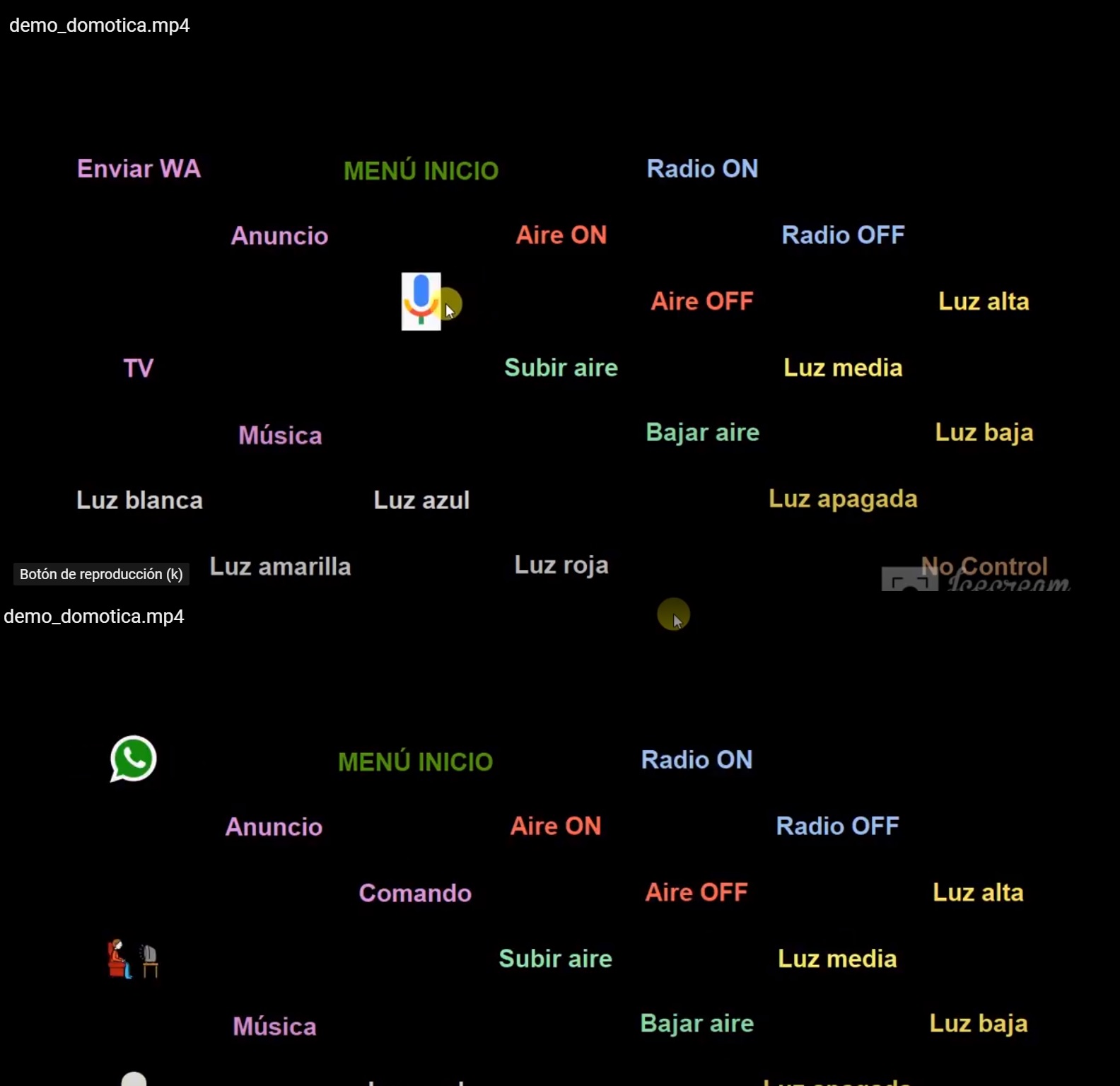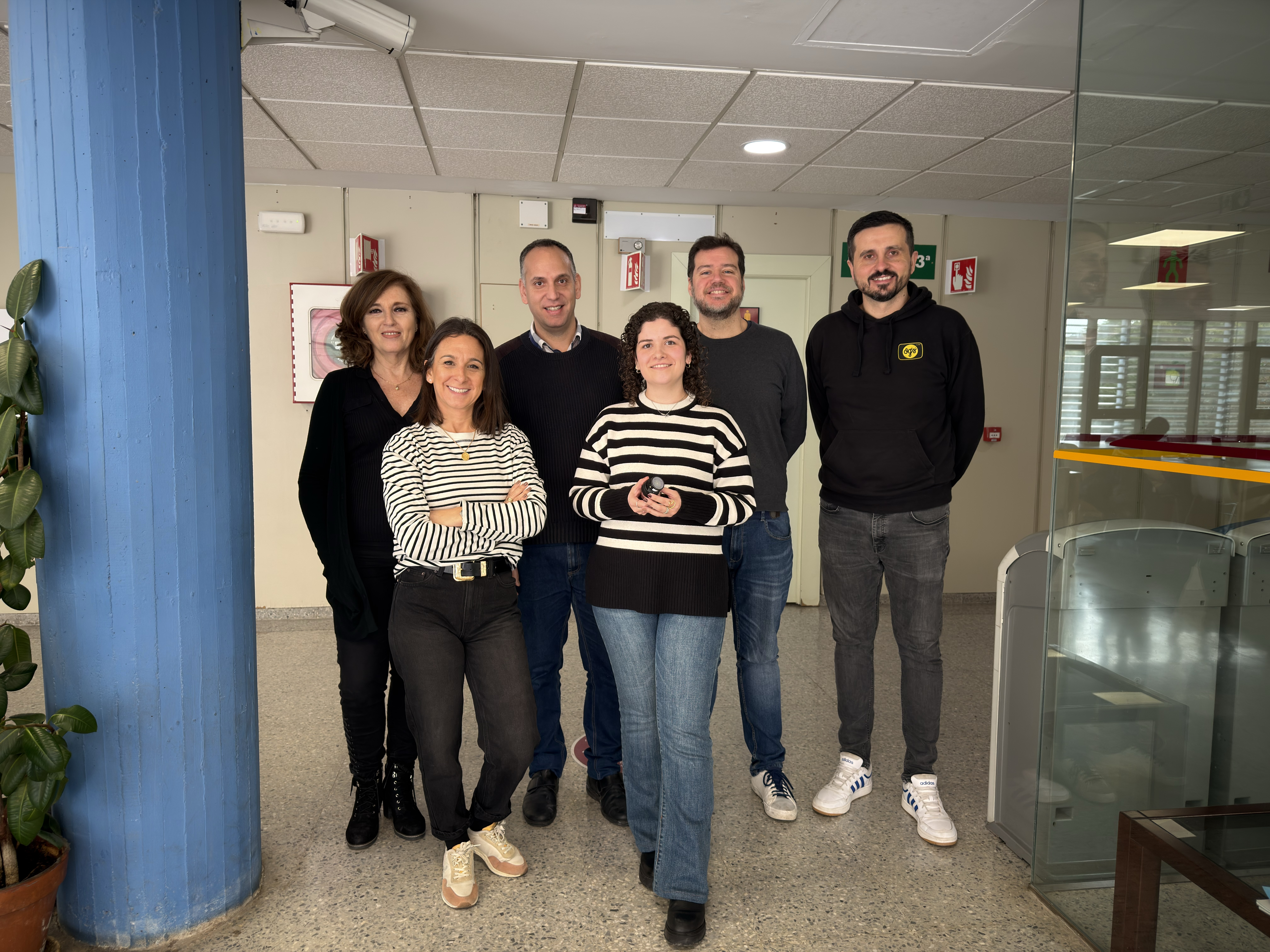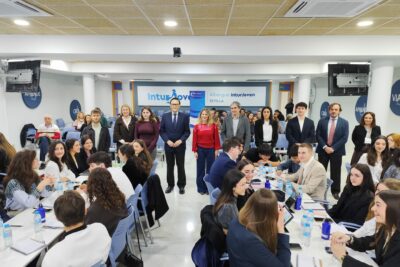Development of a prototype that reads brain signals to enable people with severe motor disabilities to communicate
A research team at the University of Malaga has created a computer program for patients affected by diseases that prevent any movement to recover their communicative competence. This system does not require any voluntary muscular action, not even blinking, for the machine to interpret what the patient wants to do. Experts have confirmed the system’s suitability for sending instant messages.
A research team from the University of Malaga has developed a prototype that combines scalp sensors and a graphical interface to enable people with severely impaired motor skills to communicate with others. The device reads brain activity and outputs it to a computer, which, with virtual voice assistants, sends the text via instant messaging services or email to the patient’s contacts.

The system uses a brain-computer interface (BCI), an assistive technology based on the user’s brain signals and an external device that ‘translates’ them.
The results of this study, developed by the UMA-BCI group with healthy people, confirm the suitability of this system to start testing it with patients affected by amyotrophic lateral sclerosis (ALS), chronic Guillain-Barré syndrome and other similar neurological diseases that induce a progressive weakening of the motor system. This condition completely isolates sufferers, causing what is known as locked-in syndrome, as it prevents them from interacting with the outside world. Being able to maintain interaction with others could improve their quality of life.
In this way, the device allows text messages to be sent to contacts on a smartphone even if the patient cannot blink. The system uses a brain-computer interface (BCI), an assistive technology based on the user’s brain signals and an external device that ‘translates’ them. Experts propose the use of this system in the article ‘Brain–Computer Interface (BCI) Control of a Virtual Assistant in a Smartphone to Manage Messaging Applications’ published in the journal Sensors as a valid option for transmitting brain activity without the intervention of any physical action.
There are currently more robust and effective systems for giving voice and movement to people with motor disabilities, but they require the use of physical activity, even minimal. «What is really novel about this project is that the voice assistant is used to control messaging applications and only requires brain activity without any other action on the part of the patient, such as blinking or eye movements,» Fundación Descubre was told by Francisco Velasco, researcher at the University of Malaga and one of the authors of the article.
Although the prototype has been successfully tested, further studies are still needed before it can be commercialised. It is necessary to perform tests with real patients to validate its suitability. Even so, it is considered to be an effective tool for improving the lives of patients and their relatives or caregivers.
Getting out of isolation
The system consists of placing a device on the head of the patient, who will see different options flash on a screen. The user mentally counts the number of times the icon they wish to use lights up. When the chosen application has been lit a predetermined number of times, it will be opened. The same procedure is then repeated with the different menus that appear, such as the contacts in their phonebook.
If the patient chooses the Whatsapp app and selects the sender and the text they want to send, the system sends a synthesised voice command, like ‘Ok Google’ on Android devices, which will be played by a virtual assistant and executed on the smartphone.
With some diseases, such as ALS, the patient sees a progressive loss of independence as their mobility is reduced to such an extent that they are not even able to control the blink function. «In total isolation, unable to move or interact in any way with the people around them, the patient’s intellectual abilities deteriorate further, in addition to the loss of motor skills,» the researcher points out.

The system consists of placing a device on the head of the patient, who will see different options flash on a screen.
For this reason, the experts propose to test the device in real-life situations with patients with severe motor disabilities, as it could help these people to interact for longer with those around them. In addition, it would make it possible to delve deeper into the disease and find out, for example, whether it causes an impairment of consciousness, something that is not yet certain. «Theories in the scientific community suggest that ALS does not affect consciousness, but only limits it at the muscular level. The mind is atrophied by isolation, but not because of any brain dysfunction. This system would help to keep patients in advanced stages active for longer,» says the researcher.
The experts also plan to continue improving the system in order to obtain an affordable and usable device, as well as to optimise the algorithms in order to reduce possible errors when selecting the different options.
This research was funded by the Spanish Ministry of Science, Innovation, and Universities through the project ‘Brain interaction system to help people with captive syndrome’ and by the University of Malaga’s own funds.
Spanish version: Desarrollan un prototipo que lee señales cerebrales para que personas con discapacidad motora grave se comuniquen
References
Francisco Velasco Álvarez, Álvaro Fernández Rodríguez, Francisco Javier Vizcaíno Martín, Antonio Díaz Estrella y Ricardo Ron Angevin.‘Brain–Computer Interface (BCI) Control of a Virtual Assistant in a Smartphone to Manage Messaging Applications’. Sensors. 2021.
Más información:
#CienciaDirecta, agencia de noticias de ciencia andaluza, financiada por la Consejería de Transformación Económica, Industria, Conocimiento y Universidades de la Junta de Andalucía.
Teléfono: 958 63 71 99
Additional documentation
Últimas publicaciones
Un equipo de investigación de la Universidad de Sevilla ha identificado un sistema rápido, no destructivo y que puede emplearse 'in situ' en las bodegas para seleccionar orujo de la uva blanca y reutilizarlos para disminuir hasta un 50% la aspereza de este producto vitivinícola.
Sigue leyendoLa Sociedad Andaluza para la Divulgación de la Ciencia y la Fundación Descubre, promovida por la Consejería de Universidad, Investigación e Innovación, organizan este foro de ideas en el que un grupo de estudiantes aborda temas científicos relacionados con el calentamiento global y la crisis ambiental.
La clausura de esta iniciativa, en la que se celebra la asamblea final, ha estado presidida por el consejero de Universidad, Investigación e Innovación, José Carlos Gómez Villamandos, y la vicepresidenta del Parlamento de Andalucía Ana Mestre.
Se trata de una lámina delgada que recubre nanogeneradores que producen electricidad mediante el impacto de las gotas de lluvia. Además, al mismo tiempo, mejora la durabilidad de las celdas fotovoltaicas. El trabajo, desarrollado por el Instituto de Ciencia de Materiales de Sevilla (ICMS) abre nuevas vías para desarrollar sistemas electrónicos autónomos destinados a ser utilizados en exteriores.
Sigue leyendo




